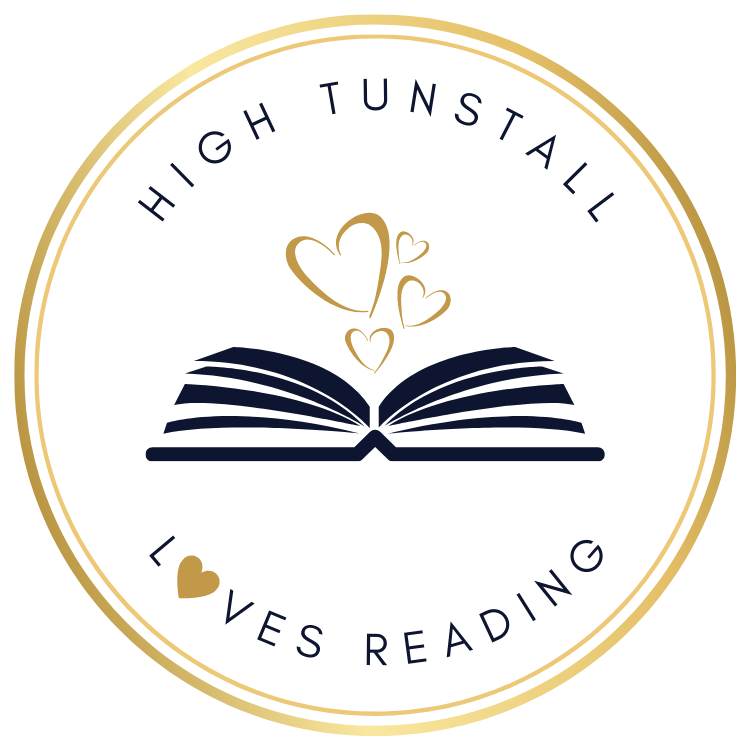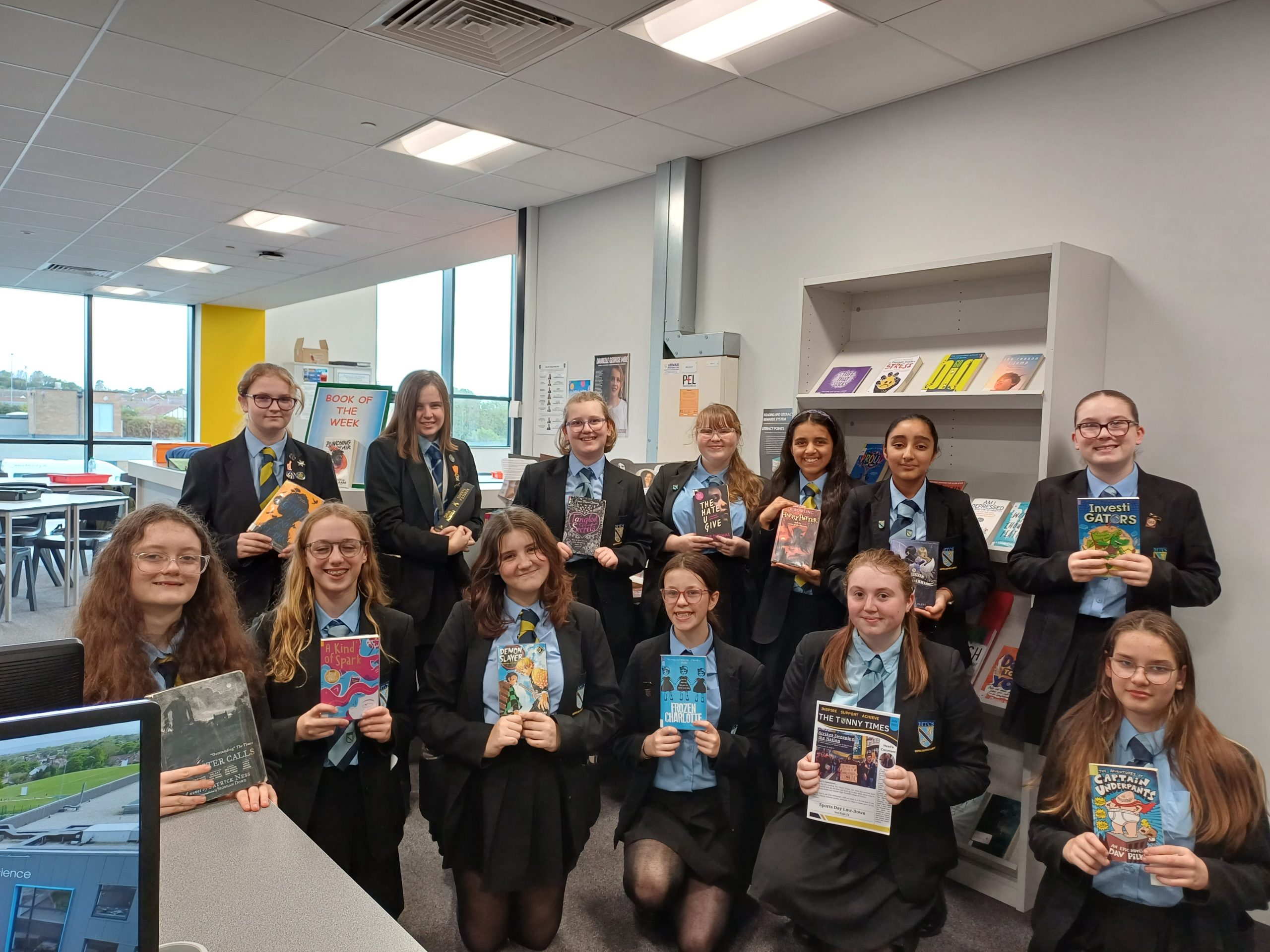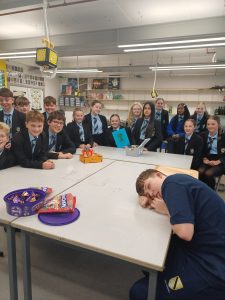Rationale and Intent
Over the last two decades, there has been a deepening recognition of the fundamental importance of improving reading standards on a child’s future academic achievement, wellbeing and success in life. The reading and writing of Standard English, alongside proficient language development, is the key to unlocking the rest of the academic curriculum. Fluency of reading is also a key indicator for future success in further education, higher education and employment.
Being a highly engaged reader has the potential to allow a child to overcome their background, finding ways to engage students in reading may be one of the most effective ways to leverage social change. Here at High Tunstall we are committed to ensuring that our curriculum gives pupils the experiences, knowledge and skills needed in order to take advantage of opportunities, responsibilities and experiences of later life. In this way, it can powerfully address social disadvantage. Our aim is to ensure that every student becomes a fluent reader who reads to learn and for pleasure.
Materials Used and Referenced
In developing our reading offer we have carefully considered a range of the best evidence to shape and refine our strategy. This includes:
- Improving Literacy in Secondary Schools (EEF Guidance report)
- The Reading Framework (DfE)
- Effective Instruction for Adolescent Struggling Readers (Boardman et al)
- Closing the Reading Gap by Alex Quigley
Materials used for implementation include:
- For word reading: The Baseline Test, The WRAT test, Rapid Phonics Placement Assessment, The Miscue Analysis, Rasinski Fluency Rubric
- For Comprehension: Inference Training (Leicester City Council) materials, Accelerated Reader, Passport
Implementation
Reading aloud and discussing the text is a crucial strand of the RfP pedagogy identified in the TaRs research. It enables students to access rich and challenging texts, offers a model for silent independent reading, prompts the student’s affective engagement, develops vocabulary and creates a class repertoire of ‘texts in common’ to discuss. This research underpins our form time reading initiative where form tutors and other adults read aloud to students for pleasure.
Our tiers of support in year 7, move from whole class teaching through to small group tuition to one to one support, increasing intensity with need. We bring together students who have been identified as having similar reading needs.
Year 7 students upon entry to High Tunstall all sit a baseline reading test. Results of which inform tiered provision for each individual. This is triangulated with formative assessment in the classroom, assessment information received from primary schools and conversations with KS2 teachers. In many cases, this is followed up with more detailed diagnostic assessments, including WRAT, Rapid Phonics Placement Test for example.
Tier 1 (Orwell)
Incorporates students with a baseline score of 90 or less. Any student within this bracket is subject to more diagnostic testing using the WRAT test, soon to be DART, to identify possible concession entitlements. Data from primary schools is also used to identify students with existing identified reading needs. Upon confirmation of concession, students follow our Orwell pathway, which begins with a further diagnostic Rapid Phonics Placement test to group students with similar reading needs into three phases of phonic development. Tier 1 students typically struggle with decoding and particularly using the alternate phonemes and graphemes within the complex code.
These students will receive small group tuition using the Rapid Phonics materials with the aim of supporting word reading and the inference training programme to support comprehension.
We will carry out termly diagnostic testing to measure the impact of the programme. Two HLTAs have been trained to deliver this programme and they continue to have access to a mentoring and coaching programme and materials delivered by a qualified Phonics trained Teacher of Communications.
Tier 2 (Rowling)
Incorporates students with a baseline score between 91-96. Any students within this bracket is subject to more diagnostic testing using Miscue Analysis to identify their specific reading barriers. Tier 2 students typically decode with a reasonable degree of fluency but find comprehension more challenging.
These students will receive fortnightly reading lessons in four differentiated groups using inference training materials, set texts and Reciprocal Reading to explicitly teach comprehension strategies.
We will carry out termly Miscue Analysis on students who were previously identified with a decoding or fluency need to measure the impact of the programme. Comprehension will be assessed as part of calendared English assessment.
Tier 3 (Zephaniah)
Incorporates students with a baseline score of 97-105. Any student within this bracket sit an Accelerated Reader STAR Assessment to place them on the Accelerated Programme. Tier 3 students typically are working around the expected reading standard, although for different reasons may not have developed into fully fluent and independent readers.
These students receive fortnightly reading lessons in class groups where they read texts within their proximal reading zone and take regular progress quizzes to measure the impact of the programme. Wide reading has benefits of exposing students to new and different content, vocabulary and text types, offering instructional opportunities for improved fluency and comprehension.
Tier 4 (Atwood)
Incorporates students with a baseline score of 106 or above. Any students within this bracket is deemed a fully fluent, independent reader and we use Reading for Pleasure pedagogy to support their reading development.
These students will be given a scaffolded but high level of reading autonomy during their fortnightly reading lesson. They will not access their reading as part of a traditional class structure, but rather in smaller highly social reading groups.
Their progress will be monitored by using passports that are regularly stamped to ensure each student is reading an appropriate breadth of genre and reading challenge. Each half term will have a dedicated genre which includes: Dystopia, Comedy, Classics, Diversity, Political and Unexpected. This will ensure that students’ reading diet is broad and balanced.
Parental Engagement
We know that parents are vital partners in children’s attainment and motivation for reading and can transform their attitudes to reading. We work with parents as partners and provide:
- Termly recommended reading lists on our website
- Termly drop in sessions offering reading advice for their children
- Termly gifted reader forums
- Half termly newsletters
Staff CPD
Staff have received training based around the EEF’s Improving Literacy in Secondary Schools Guidance Report recommendations. Including, Disciplinary Literacy and Vocabulary Instruction and future plans include Reciprocal Reading training and a Phonic approach to spelling. Literacy links in every department will continue to take the lead in embedding and refining these pedagogies.






